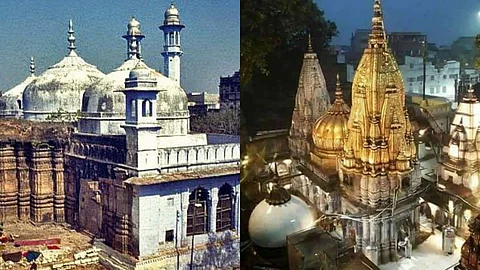
- News
- Columns
- Interviews
- Law Firms
- Apprentice Lawyer
- Legal Jobs
- हिंदी
- ಕನ್ನಡ

In the Gyanvapi-Kashi Vishwanath dispute, a Varanasi court on Wednesday reserved its order in a plea by the Muslim party challenging the maintainability of the suit filed by Hindu parties seeking worship rights inside the Gyanvapi mosque.